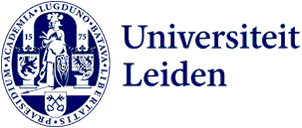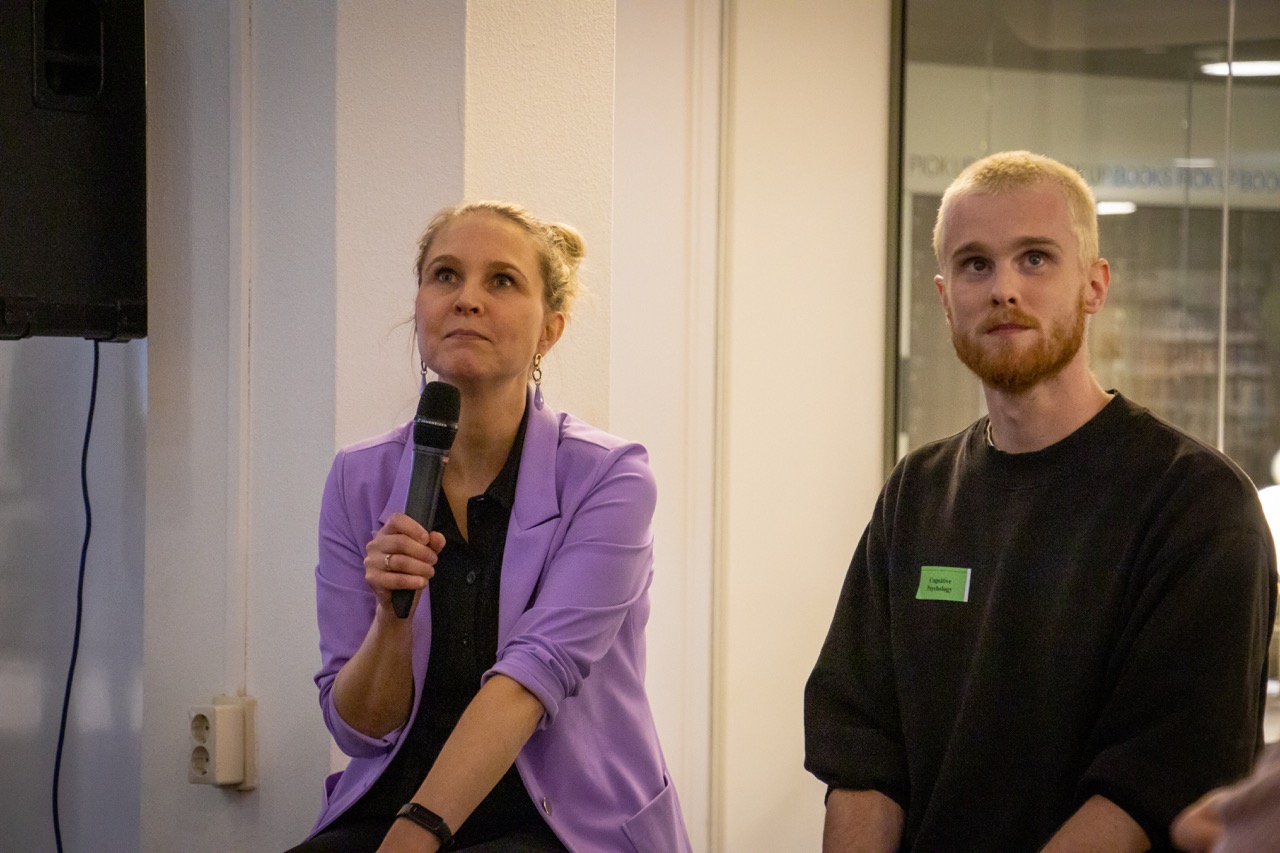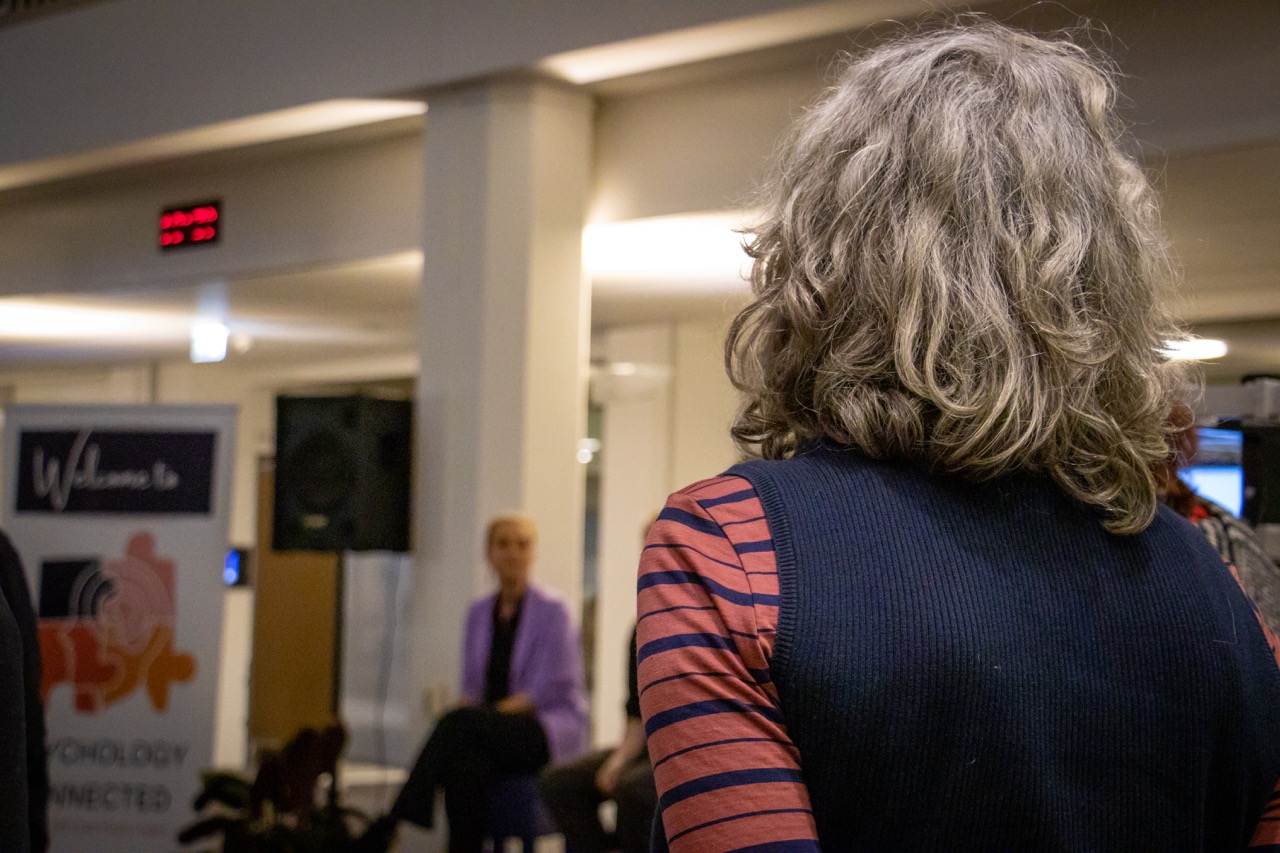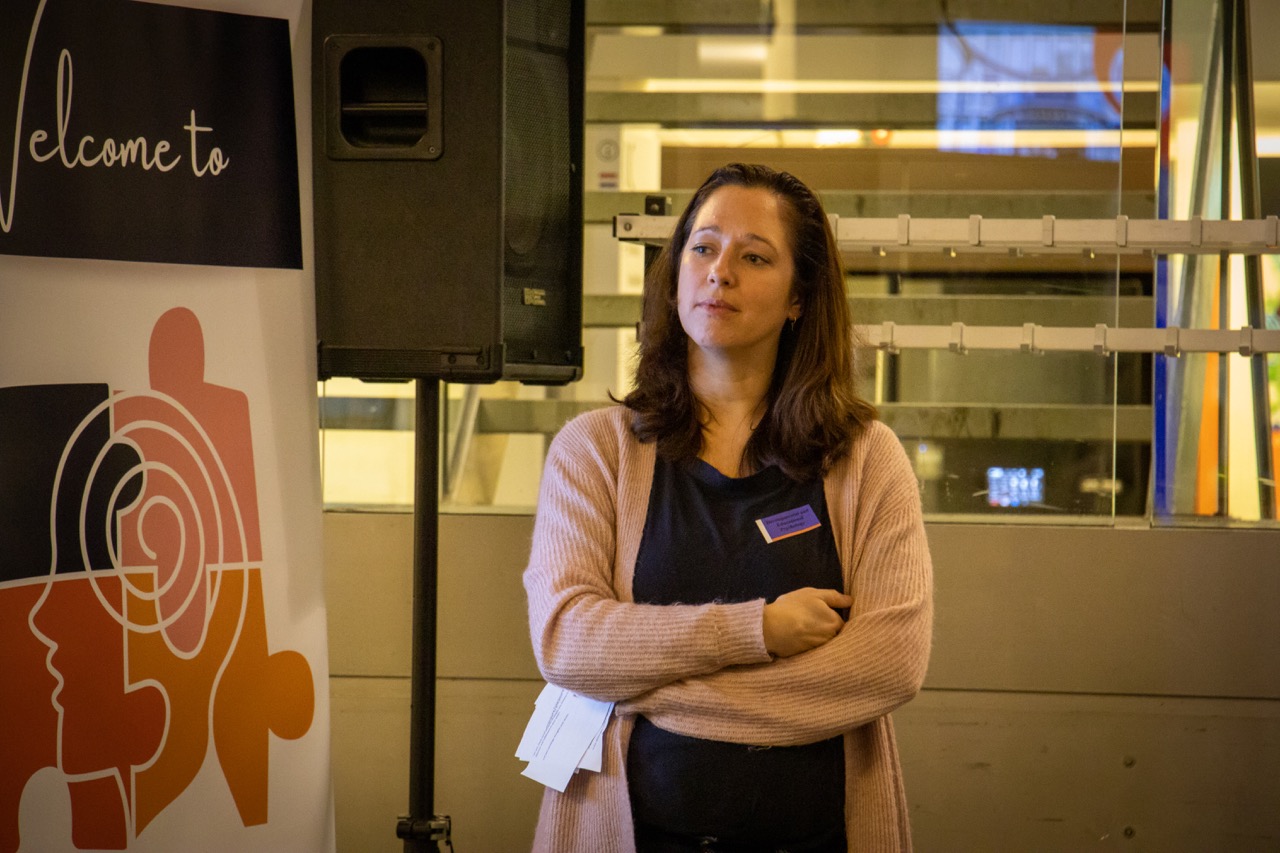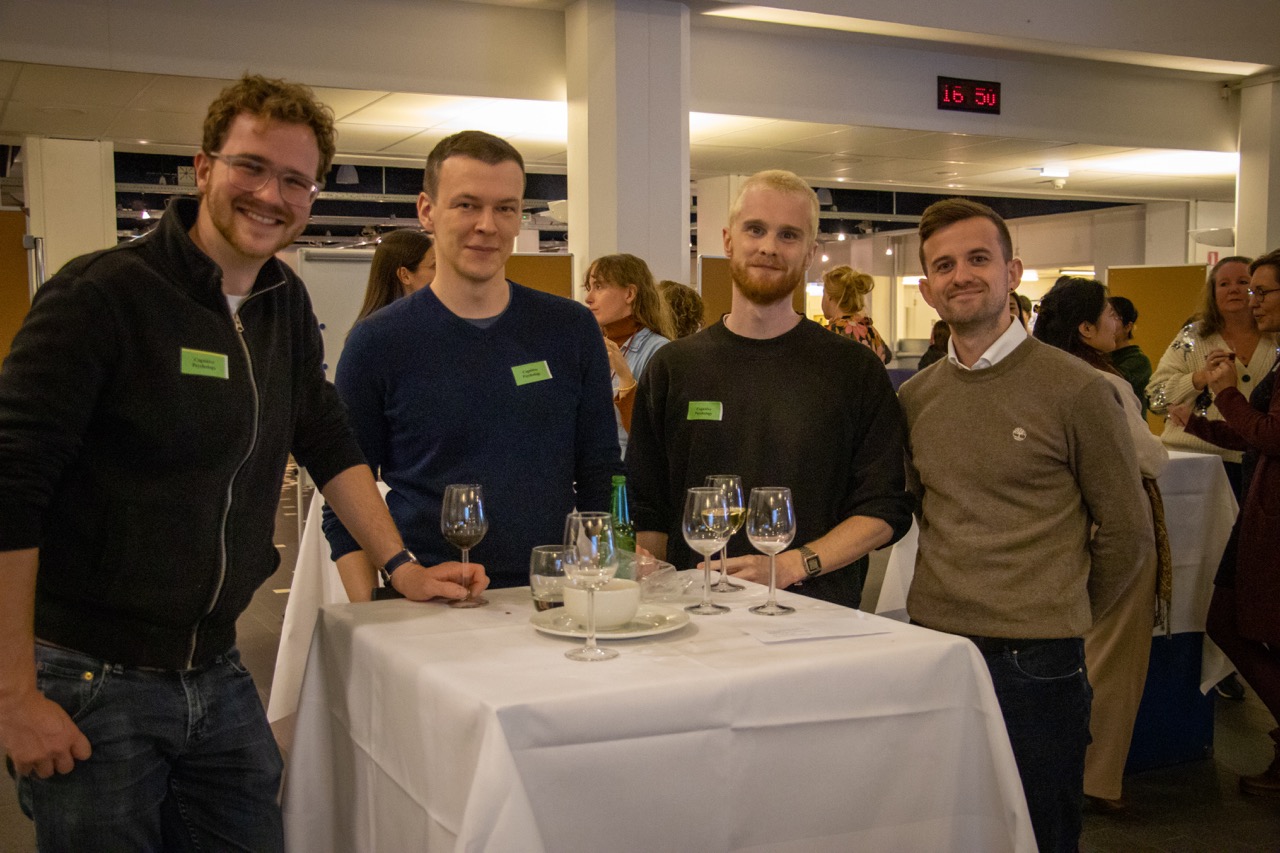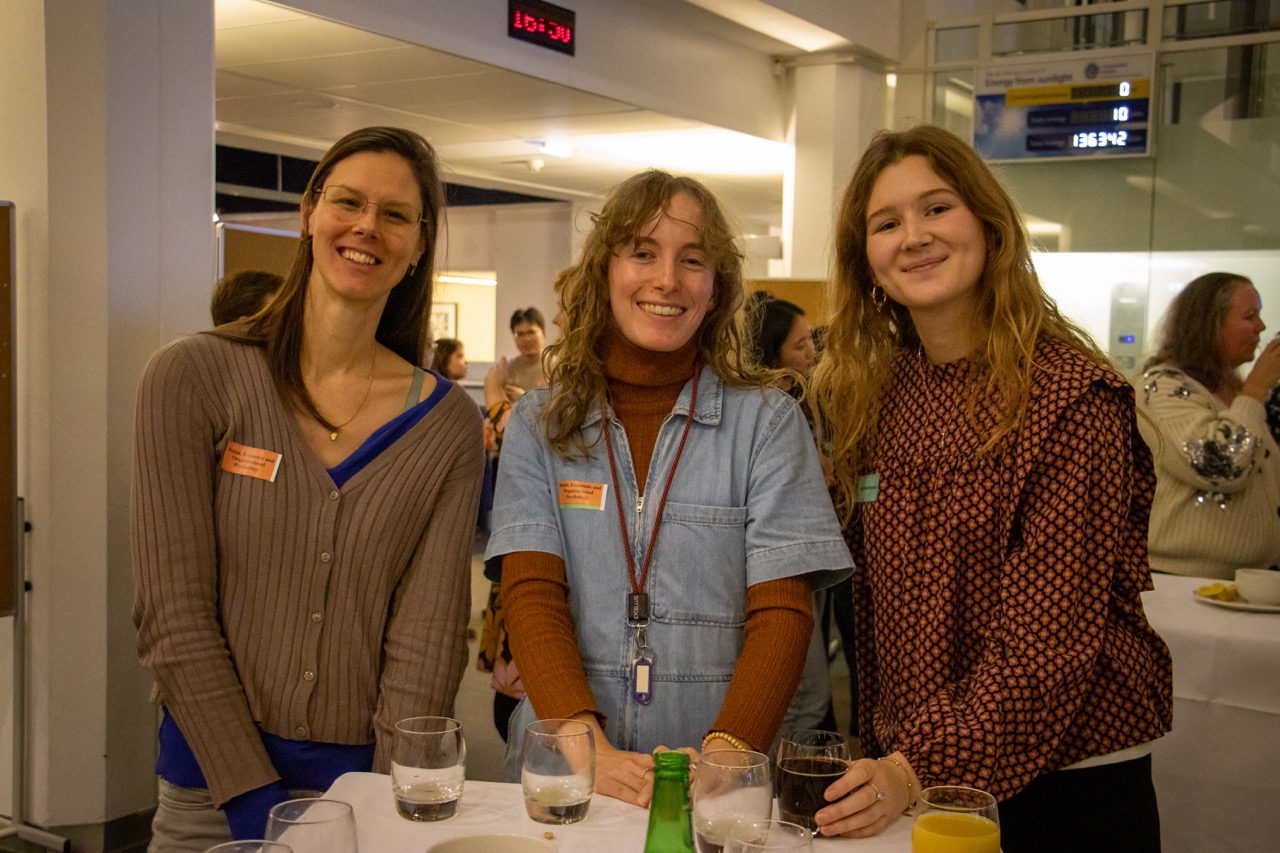
Psychology Connected on work pressure: 'Ask people around you to help you say 'no'''
Work might not always be enjoyable, but what if just a glance at the to-do list brings on a sense of dread? To initiate the conversation about this, the sixth Psychology Connected focused on work pressure and workplace enjoyment, offering tips rooted in positive psychology.
Colleagues have set aside stacks of ungraded papers and overflowing inboxes to engage in a candid conversation about work pressure, each holding a drink as they gather. Anna van Duijvenvoorde, a neuroscientist and the evening's moderator, encourages everyone to form a line as the session begins. 'Step to the left if you consider your work pressure 'low,' and all the way to the right if you presently feel the weight of high work pressure.' A sense of puzzlement fills the room as individuals find their place in the lineup. Do those on the left really look more cheerful, or is this an illusion? Now everyone has exchanged a glance with their counterparts, Van Duijvenvoorde kickstarts the panel discussion
Work pressure for PhD's
Experiencing a lot of workload for a while need not be a problem, says Chris Riddell. As a PhD, he researches people's emotional expression and represents colleagues as a PhD representative. 'I experience both job satisfaction, and work pressure, and sometimes need the latter to be productive,' he says. 'But it can be stressful for PhD students: having to balance their own expectations with those of their supervisor. As a PhD, you have many different tasks, so there is sometimes a lot of pressure.'
Marieke Adriaanse, professor of Population Health Management and ambassador of the Academia in Motion movement, agrees. 'Good leadership is very important in this, that it is clear to both PhD student and supervisor which tasks belong to whom. The PhD Golden Rules, for example, help with that.'
Until two in the morning
Adriaanse herself currently experiences little work pressure, but that hasn't always been the case. 'During covid, the workload was high and, like many colleagues, I was teaching my children during the day and then still recording lectures until two in the morning. I also notice that since becoming a professor, I get more and more requests, for instance to speak at events. I had to get used to this at the beginning.'
Recognition & rewards
Adriaanse: 'As far as I am concerned, we should be having more conversations about work pressure in the coming period, changes in that area are not yet going as fast as wanted.' She sees the latest developments in Recognition & Rewards as a step in the right direction. At the Health, Medical and Neuropsychology unit, for instance, a pilot has just been completed in which the annual result and development interviews are based on 360-degree feedback from the team, instead of researchers being judged mainly on the number of publications or grants.
Such a pilot has been piloted in several institutes, and should lead to academics no longer keeping all their plates spinning, but also being able to specialise in areas where their talents lie. The recent research project Empower Your PhD was also launched for this purpose. Initiatives like this will hopefully thus lead to less workload and more job satisfaction.
A no-committee
In the meantime, what do researchers themselves do to deal with stress, Van Duijvenvoorde asks. 'Talk about it with other PhD students. Social support makes you feel less alone, and you can also give each other tips,' Riddell advises his colleagues. Adriaanse: 'I myself always start a task just in time so that I am not tempted into perfectionism and I do have to quit in time, but maybe that's not the best advice,' she laughs. 'In any case, don't say 'yes' to all requests right away, but indicate that you will think about it for a while. If necessary, designate people around you to help you say 'no'.'
Finally, Van Duijvenvoorde introduces three concrete exercises from positive psychology that help you get more satisfaction out of the working day. 'At the end of the day, ask yourself three questions: what are you grateful for today? What made you smile? And what are you satisfied with today?' Questions that also serve perfectly well as starting points for drinks.

Will you be there next time?
The next edition of Psychology Connected will be on Thursday 7 March 2024 from 16:00 to 18:00 and will be about gender difference. Keep an eye on the event page for the latest info.
